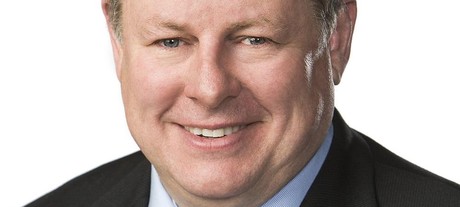Keeping the market fair for all
By Hamish Duff, President, Australian Radio Communications Industry Association
Wednesday, 19 July, 2017

ARCIA decided in 2016 that the association should get involved in advocating for public safety mobile broadband (PSMB). We believe that LMR will have a place in public safety communications for a long time to come; however, as technology changes we also believe that Australia has an opportunity to get PSMB right for the benefit of both users and industry members.
As part of our effort, ARCIA was invited to an international FirstNet meeting, with the association’s Ian Miller making the journey to Washington. Ian was able to forge some excellent contacts and subsequently we invited the president of FirstNet, TJ Kennedy, to Sydney in June, where he was special guest speaker for the ARCIA networking dinner and keynote speaker for Comms Connect Sydney. He gave considerable time to all those wanting to meet him and he spoke at length about the FirstNet contract and the future of public safety communications.
I think I can speak on behalf of everyone when I say that we all came away with a new appreciation of the amount of work that has gone into FirstNet. The scale of the networks, the long-term public–private partnership and the effort that FirstNet is putting into assuring suitability for public safety users is astounding. This is all happening within a competitive framework designed to ensure that the cost to public safety users is comparable to that of consumers. FirstNet is also investing in standards, applications and the public safety ecosystem for all kinds of data applications. This effort will have global implications as what is arguably the largest public safety market on the planet starts the move to LTE.
Of course, Australia’s governance and competitive landscape is different, but we need to learn from others. The most important people in this debate are our emergency services personnel — they deserve the best tools to meet everyday challenges.
Last week I was sent a reminder of just how out of touch our state governments can be, with news of the Queensland Government having to pay back Telstra millions of dollars in lease fees for sites on crown land. At a time when our regions are crying out for better infrastructure for the nbn, mobile phone black spot coverage and the IoT, the NSW and Queensland state governments decided to cash in on the popularity of the mobile phone market by establishing much higher leases fees, targeting the telecommunications industry. Of course, this includes anyone that happens to use a tower on crown land, whether it is a public company with billions in revenue or the local two-way radio dealer. In NSW the fees are so high they just kill any kind of investment for many tiers of business. They even charge their own agencies.
ARCIA has written to the responsible NSW minister asking for a meeting to discuss the topic. We simply get fobbed off and they refer us back to IPART. The fact that we have been arguing against this situation since the very first IPART enquiry seems to indicate that the broader communications industry is being treated with contempt. The seemingly obvious connection that access to infrastructure has a direct impact on the ability of public safety agencies, surf lifesaving clubs, local governments and many other organisations to deliver critical services is not even considered.
Please save the dates for upcoming ARCIA events, especially Melbourne on 21–23 November, where we will officially celebrate the 10th year of the association at what is set to be our best yet annual gala dinner.
Hamish Duff, President
Australian Radio Communications Industry Association
RFUANZ report: setting the frequency for success in 2025
Last year brought a lot of internal change for RFUANZ, but the association has hit the ground...
ARCIA update: an extended event calendar for 2025
With the addition of Tasmanian events and a conference in Adelaide in September, 2025 will see...
ARCIA update: plans for 2025
ARCIA will be holding a mixture of workshop, conference and networking events in 2025, in the...





